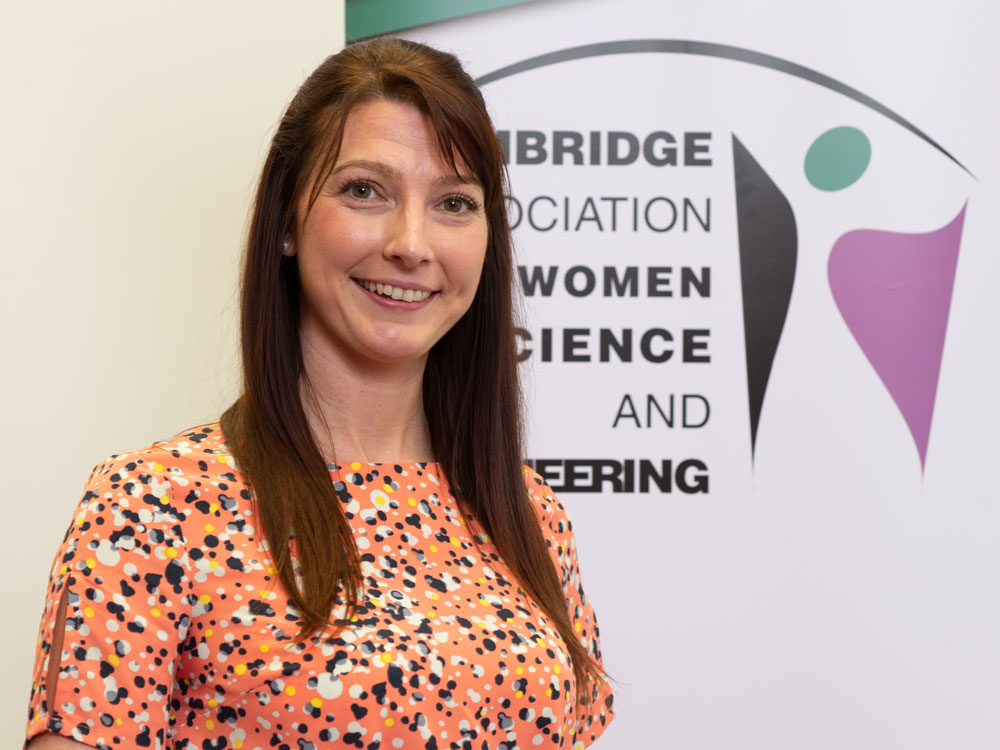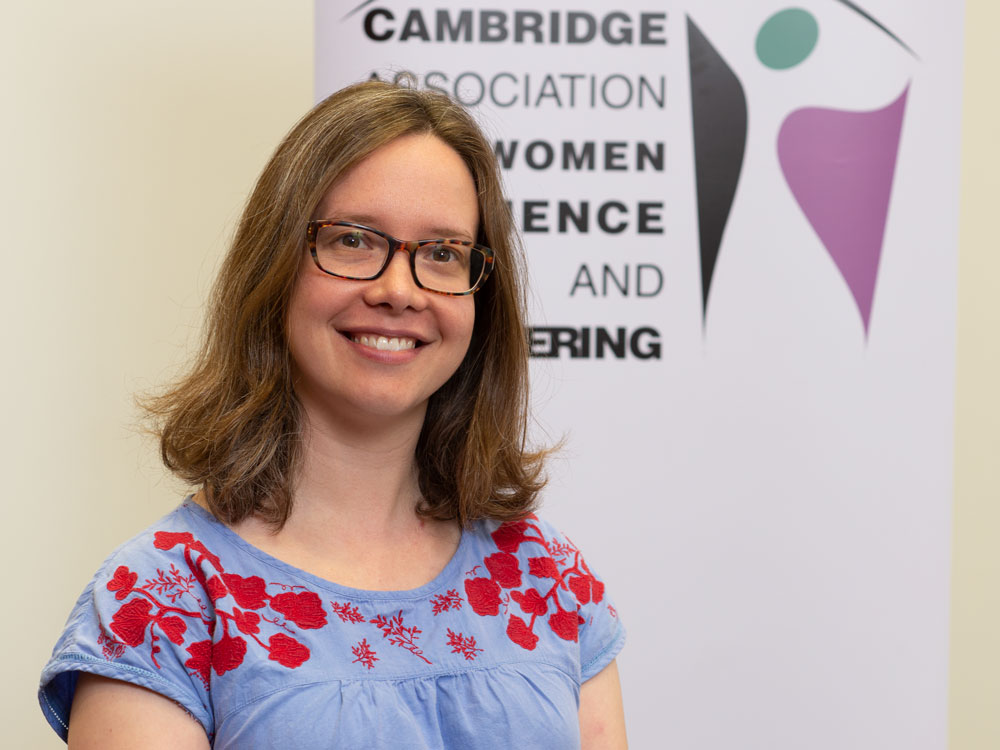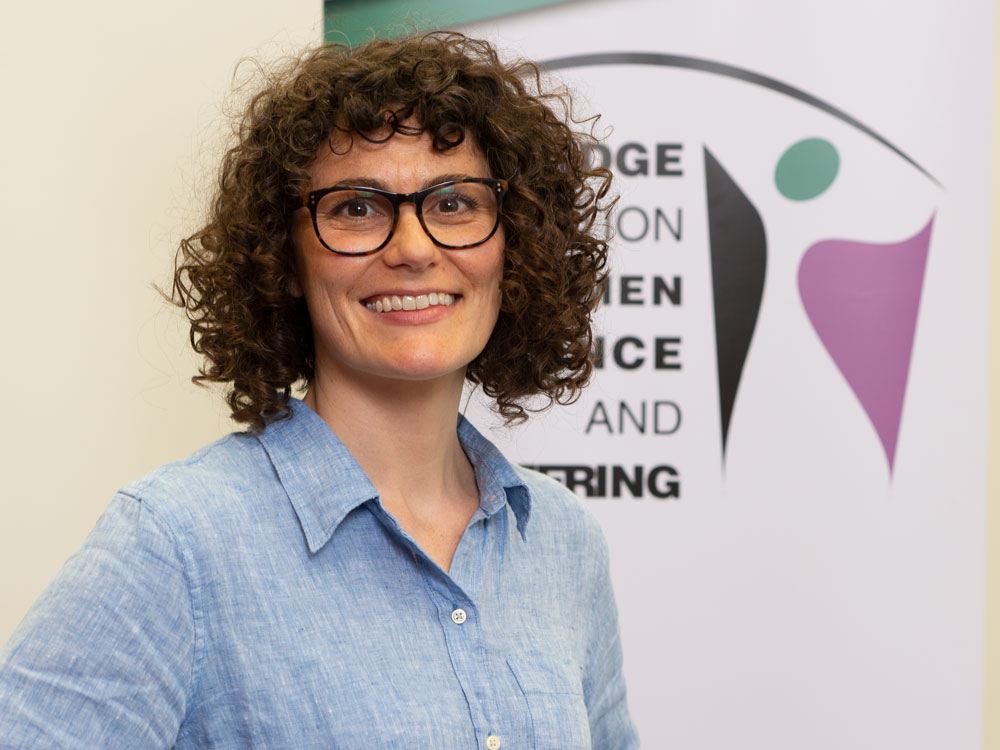The LMB and the Cambridge Association for Women in Science and Engineering (AWiSE) recently held the thirteenth annual “What Next for Your Career?” event. LMB staff and visitors from across Cambridge gathered in the Max Perutz Lecture Theatre to listen to three speakers, Emma Gleave, Jenny Gallop, and Rebecca Aarons, describe life after a PhD and share advice on career development.
While the three speakers had previously worked at the LMB concurrently, they went on to pursue rewarding careers in different directions. All three spoke about the significance of a good work-life balance, finding a job tailored to one’s needs and skills, while emphasising the importance of building a diverse network of contacts to explore various job opportunities and get valuable insights about application processes.

Emma completed her PhD in Andrew Carter’s group in the LMB’s Structural Studies Division in 2014 and moved to Meindert Lamer’s group within the same division for her first postdoctoral position until 2017. She said that at the end of her postdoc, she had found it helpful to delineate her likes and dislikes within her work profile in order to identify the kind of career she would want. This helped her prune her choices down to a career route that focused more on practical lab work. Thereafter, she joined AstraZeneca as a senior scientist in 2017. Emma had one key piece of advice – make sure you start building a network of contacts now so that it is available when needed in the future. Stay optimistic, and even if you don’t get a specific job that you applied for, you might be offered a different but similar position.

Jenny left the LMB in 2006 after her PhD in Harvey McMahon’s group in the Neurobiology Division, after which she worked as a postdoctoral research fellow at Harvard Medical School until 2011. Since then, she has been a group leader at the Gurdon Institute, University of Cambridge. She advised that you should aim to become a group leader if you have scientific problems to solve and for the sheer joy of discovery. Though these positions can be quite competitive, you should not let that be a deterrent. On modern work-life balance, Jenny said that combining work and family is made easier by recent changes made by funding bodies and by using extended support and flexible working from workplaces. She emphasised the benefit of being aware of the policies of funding bodies and institutions.

Rebecca joined the LMB in 2013 as a governance assistant after completing a PhD at the University of Manchester, a postdoc at McGill University, Montreal, and following several years at the Wellcome Trust as a scientific programme officer and science portfolio advisor. She left the LMB in 2016 to join the University of Cambridge as a research strategy analyst. To those considering a transition from research to other careers, Rebecca said that it is advisable to analyse how skills gained in academia could apply to other roles and highlight use of administrative skills in applications. She also described her experience in balancing work life with family and pointed out that negotiating flexibility or part-time work is often possible at the job offer stage and should definitely be pursued.
After the talks, there was a networking opportunity during which attendees interacted with the speakers and each other to discover more about various potential career paths that can follow a PhD in the life sciences.
Cambridge AWiSE is a regional network for women in science, technology, engineering, maths and medicine (STEMM) in both industry and academia, and also for women who wish to return to a STEMM career after a break. The organisation’s objective is to bring together women with common interests to act as a source of support, information, and inspiration. Cambridge AWiSE aims to help women stay in STEMM to make the most of their careers, and provides regular talks, workshops, networking opportunities, and information.